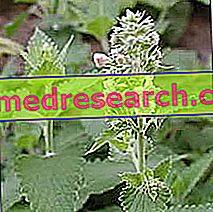RINOFLUIMUCIL ® is a drug based on N-Acetylcysteine + Tuaminoheptane sulfate
THERAPEUTIC GROUP: Mucolytics - rhinological preparations
IndicationsAction mechanismStudies and clinical effectiveness Usage and dosage instructionsWarnings Pregnancy and lactationInteractionsContraindicationsUndesirable effects
Indications RINOFLUIMUCIL ® - N-Acetylcysteine
RINOFLUIMUCIL ® is indicated for the treatment of acute, subacute, chronic, mucocostrose and vasomotor rhinitis, even when accompanied by the presence of dense and viscous secretions.
RINOFLUIMUCIL ® has also been used successfully in the treatment of sinusitis.
Mechanism of action RINOFLUIMUCIL ® - N-Acetylcysteine
RINOFLUIMUCIL ® is a drug used successfully in the treatment of inflammatory manifestations of the nose, especially when accompanied by dense and viscous hypersecretions of mucus.
Its biological efficacy is due to the presence of two different active ingredients:
- N-Acetylcysteine, which exerts both an appreciable antioxidant action, favoring the regeneration of cellular Glutathione, and an impressive mucolytic effect, degrading the disulfide bridges between the mucoproteins and thus facilitating the formation of smaller units.
- Tuaminoheptane sulfate, which instead exerts a topical action and as a sympathomimetic amine, causes vasoconstriction, decongesting the nasal mucosa.
Topical use through nasal sprays avoids the systemic absorption of both active ingredients, thus preventing the onset of systemic, potentially dangerous side effects, and significantly improving the tolerability of the drug.
Studies carried out and clinical efficacy
THE EFFICACY OF THE TUAMINOEPTANO AND N-ACETILCISTEINA ASSOCIATION
Arzneimittelforschung. 1996 Apr; 46 (4): 385-8.
Interesting work that demonstrates how the combined administration of N-Acetylcysteine and Tuaminoheptane can determine a rapid improvement of the clinical conditions of patients suffering from rhinitis, carrying out a rapid and effective decongestant effect.
N-ACETYLCISTEIN AND ACNE
Int Forum Allergy Rhinol. 2013 Jan 10
Experimental study that demonstrates the potential therapeutic effect of N-Acetylcysteine in treating acne due to both the mucolytic but especially the antioxidant effect, useful in balancing the damage induced by reactive oxygen species, particularly evident in the asthmatic pathology.
THE EFFECT OF THE N-ACETYLCISTEIN ON THE MOVEMENT OF THE NASAL LASHES
Eur J Respir Dis. 1987 Mar; 70 (3): 157-62.
A dated but interesting study that demonstrates in vitro how N-Acetylcysteine can reduce the frequency of movement of the nasal cilia, through a reversible inhibitory effect.
Method of use and dosage
RINOFLUIMUCIL ®
Solution for Nasal Spray with 1% of N-Acetylcysteine and 0.5% of Tuaminoheptane sulfate.
The convenient dispenser allows the introduction and dispensing of the drug directly into the nasal cavities.
In adults, generally 2 sprays are recommended in each nostril for 3-4 times a day.
Before using RINOFLUIMUCIL ® it would still be advisable to consult your doctor.
Warnings RINOFLUIMUCIL ® - N-Acetylcysteine
Although the systemic absorption of the active ingredients present in RINOFLUIMUCIL ® is generally not very significant, it would still be advisable to consult your doctor before taking the drug.
Particular caution should be reserved for patients suffering from cardiovascular diseases rather than for patients on Beta-blockers, due to the potential vascular effects of Tuamineptano.
It is also advisable to avoid prolonged use of RINOFLUIMUCIL ®, due to the potential inducible damage to the nasal mucosa, including drug addiction.
The presence of benzalkonium chloride in RINOFLUIMUCIL ® could cause cutaneous and respiratory hypersensitivity reactions, especially in atopic patients.
PREGNANCY AND BREASTFEEDING
The absence of clinical trials able to better characterize the potential side effects of the drug for the health of the fetus and infant, extend the aforementioned contraindications to the use of RINOFLUIMUCIL ® also to pregnancy and the subsequent period of breastfeeding.
Interactions
Despite the topical use, through nasal spray, of RINOFLUIMUCIL ® greatly reduces the systemic absorption of the active ingredients contained in it, it would be advisable to avoid the simultaneous intake of monoamine oxidase inhibitors, antihypertensives, cardiac glycosides, alkaloids, antiparkinsonian drugs and oxytocin for the potential increase in cardiovascular side effects.
Contraindications RINOFLUIMUCIL ® - N-Acetylcysteine
The use of RINOFLUIMUCIL ® is contraindicated in children under 12 years of age, in patients suffering from glaucoma, hyperthyroidism, pheochromocytoma, in patients receiving monoamine oxidase inhibitors or other sympathetic mimetics and in patients hypersensitive to the active ingredient or to one of the its excipients.
Undesirable effects - Side effects
The use of RINOFLUIMUCIL ®, especially when continued for a long time, could determine the onset of side effects such as dryness of the nose and throat, rashes, cardiovascular alterations and more rarely systemic side effects of greater clinical interest.
Note
RINOFLUIMUCIL ® is a non-prescription drug.



